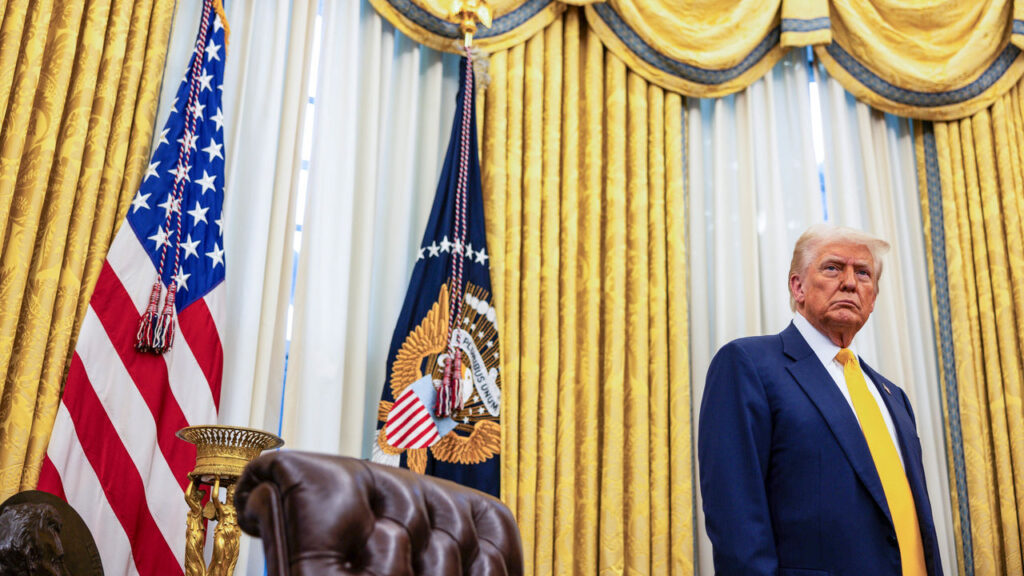The introduction of new tariffs can be anticipated to have significant ramifications on both the economy and societal fabric of nations. These tariffs, imposed by governments on imported goods, are often justified as necessary measures to protect domestic industries from foreign competition. However, the unintended consequences of such actions can be detrimental, leading to a slowdown in economic growth, increased consumer prices, and exacerbated inequality within the population.
First and foremost, the economic growth of a country can be adversely affected by the implementation of tariffs. Tariffs are intended to shield domestic producers by making imported goods more expensive, thereby encouraging consumers to buy local products. However, this protective barrier can lead to inefficiencies in various industries. Domestic companies, now less inclined to innovate and improve, may become complacent due to reduced competition. As a result, economic dynamism wanes, which can stunt job creation and hinder productivity growth. The broader implications extend to reduced exports, as other nations may retaliate by imposing their own tariffs, limiting access to foreign markets for domestic producers.
In addition to inhibiting economic growth, new tariffs tend to cause a rise in prices for consumers. When tariffs increase the cost of imported goods, these costs are often passed on to consumers. This escalation in prices can affect everything from grocery bills to electronics, ultimately compressing household budgets. Middle and lower-income families are particularly vulnerable to these price hikes, as a larger portion of their income goes toward goods that become more expensive due to tariffs. Consequently, this price inflation can lead to reduced consumer spending, which in turn can slow down economic activity further, creating a vicious cycle of decreased demand and economic stagnation.
Moreover, the implementation of tariffs can significantly worsen inequality in society. While proponents argue that tariffs can protect jobs in certain sectors, such as manufacturing, many workers in industries that rely on imported materials or components suffer as costs rise. These industries might be forced to cut jobs or reduce wages to maintain profitability. The overall landscape of employment can change dramatically, as low-income workers may find themselves disproportionately impacted while affluent individuals, who tend to have more savings and access to alternative purchasing options, may buffer the effects of rising prices. Thus, the imposition of tariffs can create a widening chasm between the wealthy and the economically vulnerable.
Furthermore, tariffs can disrupt global supply chains that many businesses depend on. In today’s interconnected economy, companies often source components from various countries to maintain efficiency and minimize costs. When tariffs are levied, the costs associated with obtaining these resources increase, which can lead businesses to reassess their supply chain management strategies. This reassessment can involve significant investment in reconfiguring production processes or relocating operations, which may introduce even more economic uncertainty and operational hurdles.
There’s also a psychological component to consider. Businesses, reacting to the uncertainty that tariffs create, may delay expansion plans or investment in new technologies. This reluctance can stifle innovation and advancement, both of which are crucial for sustaining long-term growth and competitiveness in the global market.
In conclusion, while the intent behind imposing new tariffs may be to protect domestic industries and foster local employment, the broader economic consequences can stall growth, elevate prices, and deepen inequality. Awareness of these complex interconnections is essential for policymakers, who must consider the multifaceted impacts of tariffs. A more balanced approach to protecting local industries, one that fosters competition and supports economic dynamism without resorting to counterproductive measures, can ultimately lead to healthier economic outcomes for society as a whole. Ensuring the overall economic health and stability requires careful navigation of such policies that can lighten the burden on consumers and strive to create equitable opportunities for all.









